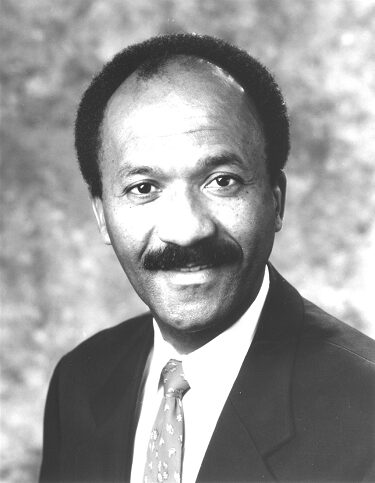Franklin D. Raines
Class of 2001
- Former Chairman and CEO Fannie Mae

My definition of luck is preparation meeting opportunity.
Franklin Raines was born in 1949 in Seattle, Washington. His parents had five boys and one girl. They later took in a nephew whose mother had died. "I was the third from the last in that mix," says Raines. His father had some high school education, but his mother never made it beyond elementary school.
For most of Raines's life, his father was a custodian. At one time, his father had a promising job with Boeing, but severe bouts of depression made him unable to keep that job. When Raines was seven, his father became so severely depressed that he was hospitalized for a year. For the remainder of his life, he had periodic relapses of depression. Raines's mother worked nights as a custodian so that she could care for her large family during the day.
When he was eight, Raines got a job at the local grocery store stocking shelves and sweeping floors for $2 a week. By age 16, his wages had climbed to $10 a week. During his father's hospitalization, Raines gave half his income to his mother and kept the rest to pay for his own needs. In high school, he worked in a department store and refereed basketball games.
Raines was a star debater and captain of his high school football team. He became interested in politics, serving a summer internship with Washington's secretary of state, his first foray into government. He later became junior class president and then student body president. Raines applied to Harvard University, Yale University, Stanford University, Wesleyan University, and Princeton University. On April 15, the day the answers were to arrive in the mail, he left school early to see if he had been accepted to any of his choices. "When I opened the mailbox, there were five fat envelopes," he recalls. "That's always good news."
With the help of a large scholarship, Raines accepted Harvard's offer. But once there, he immediately felt inferior to his classmates financially, educationally, and socially. He quickly got involved with campus governance and Harvard political life, serving as vice president of the Freshman Council and chairman of Harvard's first student-faculty committee.
During summers, he interned for Daniel Patrick Moynihan, who at the time was President Richard Nixon's urban affairs adviser. Raines graduated magna cum laude in 1971 and then left for England to study at Oxford as a Rhodes scholar. He took a leave from Oxford to work for the Seattle Model Cities Program. In 1973, he returned to Massachusetts to attend Harvard Law School, again on scholarship. To pay for his own expenses, however, he was a graduate assistant for an undergraduate course about the Supreme Court. He also consulted with local governments, and earned free room and board by serving as a freshman adviser.
Raines earned his law degree in 1976 and accepted a job offer from a Seattle law firm. He was there for only seven months when President Jimmy Carter asked him to work in the White House on welfare reform. Raines had done his senior thesis in college on welfare reform, and he had continued studying it and writing about it at Oxford and in law school.
In 1978, he was promoted to associate director of the Office of Management and Budget (OMB). Before he was 30, Raines was supervising 25 percent of the federal budget.
In 1979, looking for an opportunity outside government, Raines accepted the offer of a vice presidency with Lazard Frères in New York. Twelve years later, as a partner with Lazard Frères, he decided it was time for another change. In 1991, he became vice chairman of the Federal National Mortgage Association (Fannie Mae) and focused his attention on new business development, technology, and strategic planning.
In 1996, he returned to government to serve as OMB director, becoming the first OMB chief in 30 years to balance the federal budget. After two years of government service and serving as the president's key negotiator for the Balanced Budget Act of 1997, he returned to Fannie Mae as chairman-designate. He served as chairman and CEO from 1999 to 2004.
"My definition of luck is preparation meeting opportunity," says Raines, looking back at his career. "When others look at your success, they may say you were simply lucky with the opportunities that came your way. You have to be prepared for opportunities because if they come your way and you aren't prepared, nothing is going to happen. It just looks like luck. My advice is to be good at something, rather than mediocre at everything. Get yourself prepared, and then expose yourself to opportunities."
